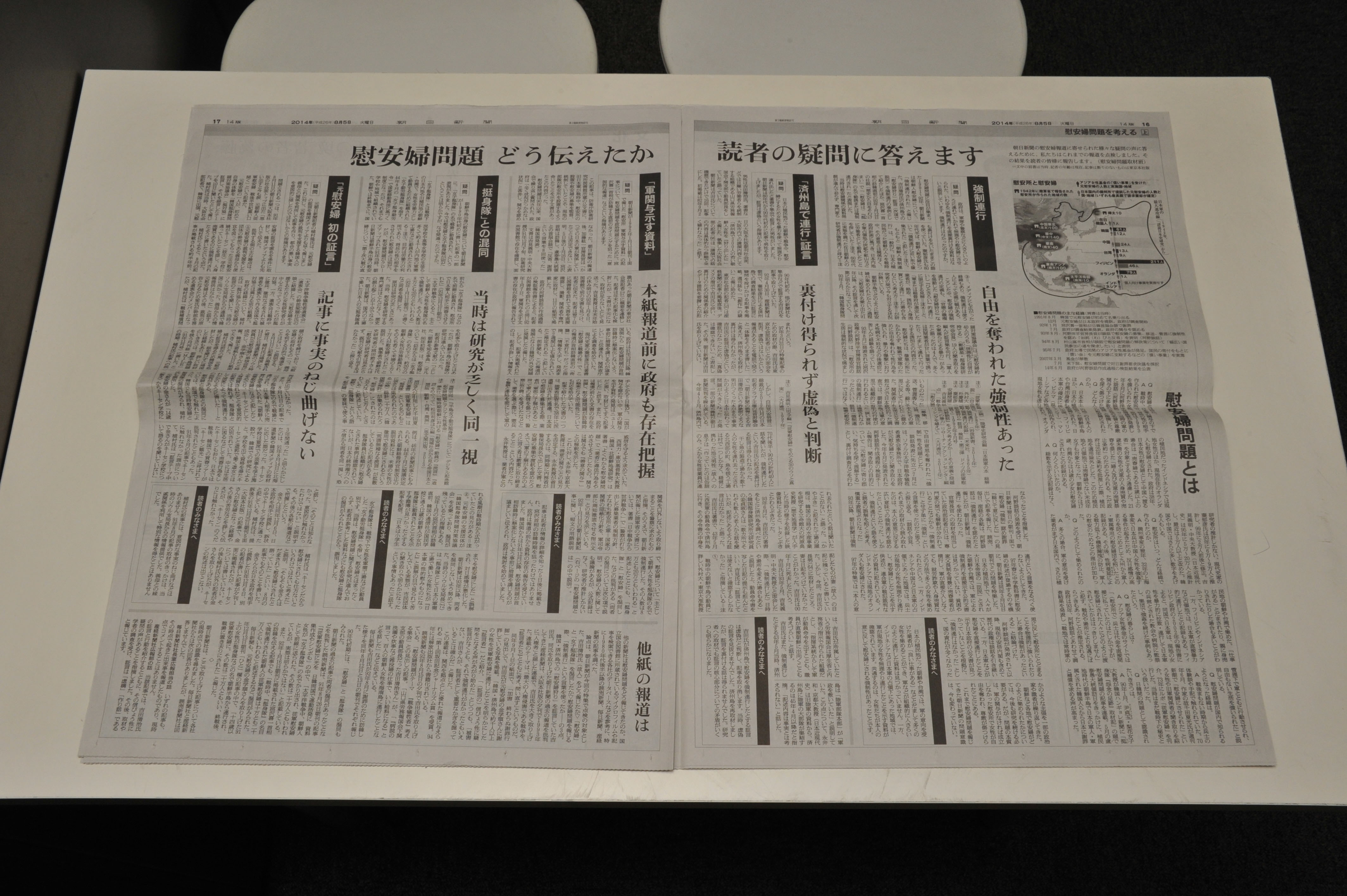It has been almost a month since the Asahi Shimbun printed a long, two-part retraction of its reporting in the 1980s and '90s on the "forced mobilization" of so-called comfort women during World War II based on the published confessions of a man named Seiji Yoshida.
The paper concluded that Yoshida had lied about kidnapping Korean girls and women on Jeju Island and forcing them into sexual servitude at the behest of the Japanese military. Other media had also related Yoshida's story at the time but eventually became suspicious. By the mid-1990s, they considered him unreliable at best and a "scoundrel" at worst, which is how Prime Minister Shinzo Abe once described him. Because Asahi's coverage of the comfort women issue has always been tied to Yoshida's testimony, the paper perhaps felt reluctant to disavow it, but the evidence against Yoshida's version turned out to be overwhelming, and Asahi finally did what it had to do.
It wasn't enough for the paper's rivals. Many media continue to complain that the retraction was insufficient, that Asahi must express remorse appropriate to the gravity of its sins, including an apology to the international community. It must also punish the people responsible for the reporting. The ruling Liberal Democratic Party has picked up this sentiment and says it may grill the paper's editors in the Diet.



